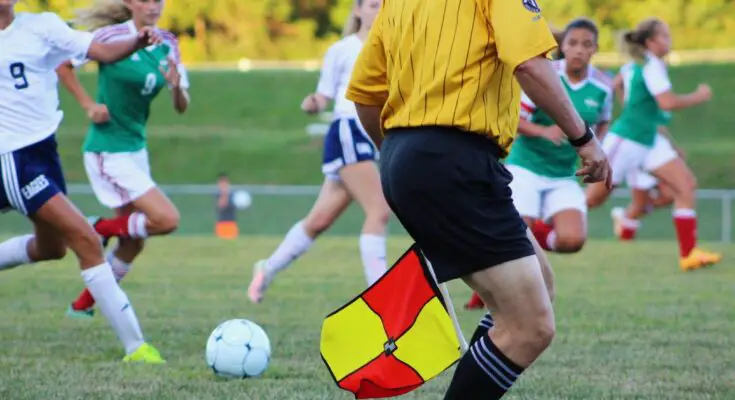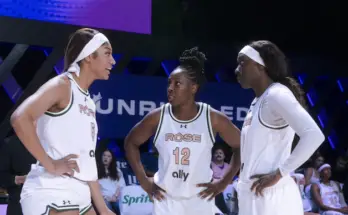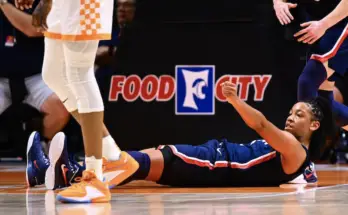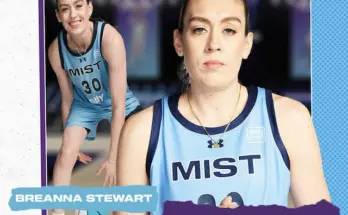More people are watching women’s sports than ever before. According to the Women’s Sports Trust, a leading women’s sports charity in the UK, Q1 2022 was the most-watched quarter in the history of women’s sports in the UK, with 15.1 million viewers. When viewership increases, so does the fanbase. In fact, UEFA has predicted that by 2023, the women’s football fanbase has the potential to double to 328 million fans, have a sixfold increase in commercial value, and a sevenfold increase in media rights to 256 million. However, when supporters’ voices increase, so do the trolls, whose abusive comments pose a risk to the growth of our beloved athletes, the game, and the community we’ve worked so hard to build.
Success is a Double Edge Sword
Both the 2022 Wimbledon Championships and the UEFA Women’s Euro 2022 broke virtual and in-person viewing records. However, the rise in popularity comes at a cost. Along with more support comes more trolls, bullies, and haters. The misogynistic and sexist online toxicity not only diminishes women’s desire to play sports, but it also is a form of digital repression for marginalized fans. At Areto Labs, as we listen to stories of women who are educated super-fans of sports like F1, hockey, or basketball, we commonly hear about how they had to shut down online just because of the old-fashioned stereotypical discussions they came across on the internet assuming them to be uninformed about sports.
Let’s face it. Currently, more franchises in most leagues cater to the same old tapped-out market of upper-middle-class white men. While fostering a more inclusive environment is the right thing to do, it will also lead to a stronger bottom line as more people feel connected to teams they believe reflect their values.
So what should sports teams be doing to protect their athletes and grow their audiences? We’ll break it down.
Recognize the Issue
First, there needs to be a base understanding of the impact online abuse has on the game. Every day in the news, we hear about how online abuse leads to athlete resignation and mental health struggles. This abuse is escalated when there is fear of reporting or when reporting is not taken seriously. Whether it’s sexism or racism, or threats, online abuse affects mental health and sets the tone for who does and doesn’t belong.
Health is also critical to performance. As revealed in Rice and colleagues’ database analysis of 60 studies, elite athletes are at high risk of poor mental health, including anxiety, depression, and eating disorders.
This can impact how an individual performs, which impacts how well a team can perform, which then impacts the product on the pitch and streaming on the screen. If athletes or staff can’t perform on the day or no longer want to engage on social media, everyone feels it – including sponsors, fans, and organizations as a whole.
Be an Active Bystander
Second, sports organizations need to have a higher standard of duty of care for their employees and take accountability to mitigate the impacts of the abuse and harassment their athletes face on the job. In other words, when people are abused, employers and partners must intervene and support them. They should be the loudest voice in the conversation about who can play, who can be a fan in the stands and in the digital arena, and who belongs in the wider community of each sport.
Moderate Toxicity to Counteract Hate
Third, organizations need to help be part of larger societal change – that includes standing up to “fans” who do not reflect the team’s values. If a sports team is having a Latino heritage night or pride celebration, which are receiving derogatory comments from “fans,” the team needs to clap back, mute these accounts, or deploy other creative counteractions to ensure they are not being a passive bystander. If a team doesn’t have this expertise in-house or know where to start, there are tons of third-party organizations and technologies that can be brought in to help address the issue. Meaning there is no excuse for letting toxicity run rampant online.
Real “Fans” Don’t Post Prejudiced Messages
Whether it’s in tennis, football, rugby, basketball, hockey, or any other sport, social media abuse can give control of the narrative to the loudest and vilest, and it comes at a cost.
Taking the online abuse bull by the horns is essential to the further growth of women’s sports. We need to continue to unlock growth opportunities while also removing the barriers that are preventing women’s sports from moving forward at a greater pace.
The virtuous cycle is hard to ignore: When we create an environment that allows our athletes to thrive, we enable women’s sports fandom to grow. This ensures more investment and media coverage in the game, which then creates an environment that allows athletes and fandom to thrive.
The scary thing about online abuse is that it is reaching emerging fans and athletes at young ages – dissuading them from ever getting involved in the first place. This perpetuates the idea that elite athleticism belongs to a privileged demographic of people. It is impossible to quantify how many great talents have been lost as a result. Now that we know better, we must do better and encourage sports organizations to step up and protect the game and the people who love it.
- Written by Kasey Machin, COO Areto Labs
For more on women’s sports, make sure to check out Beyond Women’s Sports. Don’t forget to follow us on Twitter.




